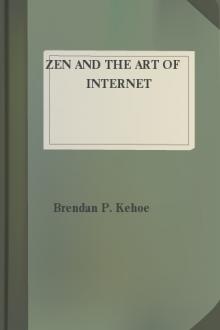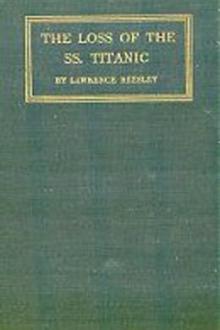Genre History. Page - 18

he Ameer of Afghanistan, Shere Ali, the terms of a "Russian treaty," whose characteristics have already been described. Hearing of this, the English Ambassador at St. Petersburg questioned the Russian Minister, who answered him "that no mission had been, nor was intended to be, sent to Kabul, either by the Imperial Government or by General Kaufmann." This denial was given on July 3d, the day after Stolietoff and his mission had started from Samarcand. After the envoy's arrival at Kabul, another remonstrance met with the reply that the mission was "of a professional nature and one of simple courtesy," and was not, therefore, inconsistent with the pacific assurances already given. The real nature of this mission became known from papers found by General Roberts at Kabul in 1879. These showed that Shere Ali had been invited to form a close alliance with the Russian Government. General Kaufmann had advised Shere Ali to try and stir up disaffection among the Queen's Indian subjects, promising to aid him, eventuall

er. It struck at the root of all things.
'But I do mind,' objected Jelliffe. 'It's most important. A lot of money hangs on it. We've got a sweepstake on in the company, the holder of the winning name to take the entire receipts. Come on. Who is he?'
Henry rose and made for the door. His feelings were too deep for words. Even a minor detective has his professional pride; and the knowledge that his espionage is being made the basis of sweepstakes by his quarry cuts this to the quick.
'Here, don't go! Where are you going?'
'Back to London,' said Henry, bitterly. 'It's a lot of good my staying here now, isn't it?'
'I should say it was--to me. Don't be in a hurry. You're thinking that, now we know all about you, your utility as a sleuth has waned to some extent. Is that it?'
'Well?'
'Well, why worry? What does it matter to you? You don't get paid by results, do you? Your boss said "Trail along." Well, do it, then. I should hate to lose you. I don't suppose you know

Network Basics
We are truly in an information society. Now more than ever, movingvast amounts of information quickly across great distances is one ofour most pressing needs. From small one-person entrepreneurialefforts, to the largest of corporations, more and more professionalpeople are discovering that the only way to be successful in the '90sand beyond is to realize that technology is advancing at a break-neckpace---and they must somehow keep up. Likewise, researchers from allcorners of the earth are finding that their work thrives in anetworked environment. Immediate access to the work of colleaguesand a ``virtual'' library of millions of volumes and thousands ofpapers affords them the ability to encorporate a body of knowledgeheretofore unthinkable. Work groups can now conduct interactiveconferences with each other, paying no heed to physicallocation---the possibilities are endless.
You have at your fingertips the ability to talk in ``real-time'' w

Blue Screen of Death" that appears on Windows users' monitors when something goes irretrievably wrong is the butt of many jokes.
Linux users also bragged about the quality of their desktop interface. Most of the uninitiated thought of Linux as a hacker's system built for nerds. Yet recently two very good operating shells called GNOME and KDE had taken hold. Both offered the user an environment that looked just like Windows but was better. Linux hackers started bragging that they were able to equip their girlfriends, mothers, and friends with Linux boxes without grief. Some people with little computer experience were adopting Linux with little trouble.
Building websites and supercomputers is not an easy task, and it is often done in back rooms out of the sight of most people. When people began realizing that the free software hippies had slowly managed to take over a large chunk of the web server and supercomputing world, they realized that perhaps Microsoft's claim was viable. Web servers and su

row of cafes,until I saw again a distant column crowned with a dancing figure;the freedom that danced over the fall of the Bastille.Here at least, I thought, is an origin and a standard,such as I missed in the mere muddle of industrial opportunism.The modern industrial world is not in the least democratic; but it issupposed to be democratic, or supposed to be trying to be democratic.The ninth century, the time of the Norse invasions, was not saintlyin the sense of being filled with saints; it was filled with piratesand petty tyrants, and the first feudal anarchy. But sanctitywas the only ideal those barbarians had, when they had any at all.And democracy is the only ideal the industrial millions have,when they have any at all. Sanctity was the light of the Dark Ages,or if you will the dream of the Dark Ages. And democracy is the dreamof the dark age of industrialism; if it be very much of a dream.It is this which prophets promise to achieve, and politicians pretendto achieve, and poets some

swung them to their shoulders, and then, without a word of salutation or even a glance at the parents, they noiselessly passed out of that narrow door and disappeared in the virgin forest. They were pagan Saulteaux, by name Souwanas and Jakoos.
The Indian names by which these two children were called by the natives were "Sagastaookemou," which means the "Sunrise Gentleman," and "Minnehaha," "Laughing Waters."
To the wigwam of Souwanas, "South Wind," these children were being carried. They had no fear of these big Indians, though the boy was only six years old, and his little sister but four. They had learned to look with laughing eyes even into the fiercest and ugliest of these red faces and had made them their friends.
So even now, while being carried away among the dense trees, they merrily laughed and shouted to each other. The bright patches of sunshine on the ground, the singing birds, and the few brilliant-hued summer flowers, brought forth their exclamations of delight, while all

Cawley--should have a place in the honourable list of those who did their duty faithfully to the ship and the line they served.
CHAPTER II
FROM SOUTHAMPTON TO THE NIGHT OF THE COLLISION
Soon after noon the whistles blew for friends to go ashore, the gangways were withdrawn, and the Titanic moved slowly down the dock, to the accompaniment of last messages and shouted farewells of those on the quay. There was no cheering or hooting of steamers' whistles from the fleet of ships that lined the dock, as might seem probable on the occasion of the largest vessel in the world putting to sea on her maiden voyage; the whole scene was quiet and rather ordinary, with little of the picturesque and interesting ceremonial which imagination paints as usual in such circumstances. But if this was lacking, two unexpected dramatic incidents supplied a thrill of excitement and interest to the departure from dock. The first of these occurred just bef

e with you. The railway last night for twenty miles back was held up for State purposes. We none of us know why, and it doesn't do to be too curious over here, but they have an idea that you are either a journalist or a spy."
"Civis Britannicus sum!" the boy answered, with a laugh.
"It doesn't quite mean what it used to, sir," the man answered quietly.
CHAPTER II
AT THE CAFÉ MONTMARTRE
Exactly a week later, at five minutes after midnight, Guy Poynton, in evening dress, entered the Café Montmartre, in Paris. He made his way through the heterogeneous little crowd of men and women who were drinking at the bar, past the scarlet-coated orchestra, into the inner room, where the tables were laid for supper. Monsieur Albert, satisfied with the appearance of his new client, led him at once to a small table, submitted the wine card, and summoned a waiter. With some difficulty, as his French was very li

NIZE A SCIENTIFIC GROUP OF THREE SECTIONS FOR POTENTIAL USE IN JAPAN IF SUCH USE SHOULD BE DESIRED. THE FIRST GROUP IS FOR HIROSHIMA, THE SECOND FOR NAGASAKI, AND THE THIRD FOR THE PURPOSE OF SECURING INFORMATION CONCERNING GENERAL JAPANESE ACTIVITIES IN THE FIELD OF ATOMIC WEAPONS. THE GROUPS FOR HIROSHIMA AND NAGASAKI SHOULD ENTER THOSE CITIES WITH THE FIRST AMERICAN TROOPS IN ORDER THAT THESE TROOPS SHALL NOT BE SUBJECTED TO ANY POSSIBLE TOXIC EFFECTS ALTHOUGH WE HAVE NO REASON TO BELIEVE THAT ANY SUCH EFFECTS ACTUALLY EXIST. FARRELL AND HIS ORGANIZATION HAVE ALL AVAILABLE INFORMATION ON THIS SUBJECT."
General Farrell arrived in Yokohama on 30 August, with the Commanding General of the 8th Army; Colonel Warren, who was Chief of the Radiological Division of the District, arrived on 7 September. The main body of the investigating group followed later. Preliminary inspections of Hiroshima and Nagasaki were made on 8-9 and 13-14 September, respectively. Members of the press had been enabled to precede G

s, and onlyafter she had recovered from her astonishment and her husband hadfled did she take notice of the pain, then remaining in bed forseveral days, to the great delight of Paulita, who was very fondof joking and laughing at her aunt. As for her husband, horrifiedat the impiety of what appeared to him to be a terrific parricide,he took to flight, pursued by the matrimonial furies (two curs and aparrot), with all the speed his lameness permitted, climbed into thefirst carriage he encountered, jumped into the first banka he saw onthe river, and, a Philippine Ulysses, began to wander from town totown, from province to province, from island to island, pursued andpersecuted by his bespectacled Calypso, who bored every one that hadthe misfortune to travel in her company. She had received a report ofhis being in the province of La Laguna, concealed in one of the towns,so thither she was bound to seduce him back with her dyed frizzes.
Her fellow travelers had taken measures of defense by keeping